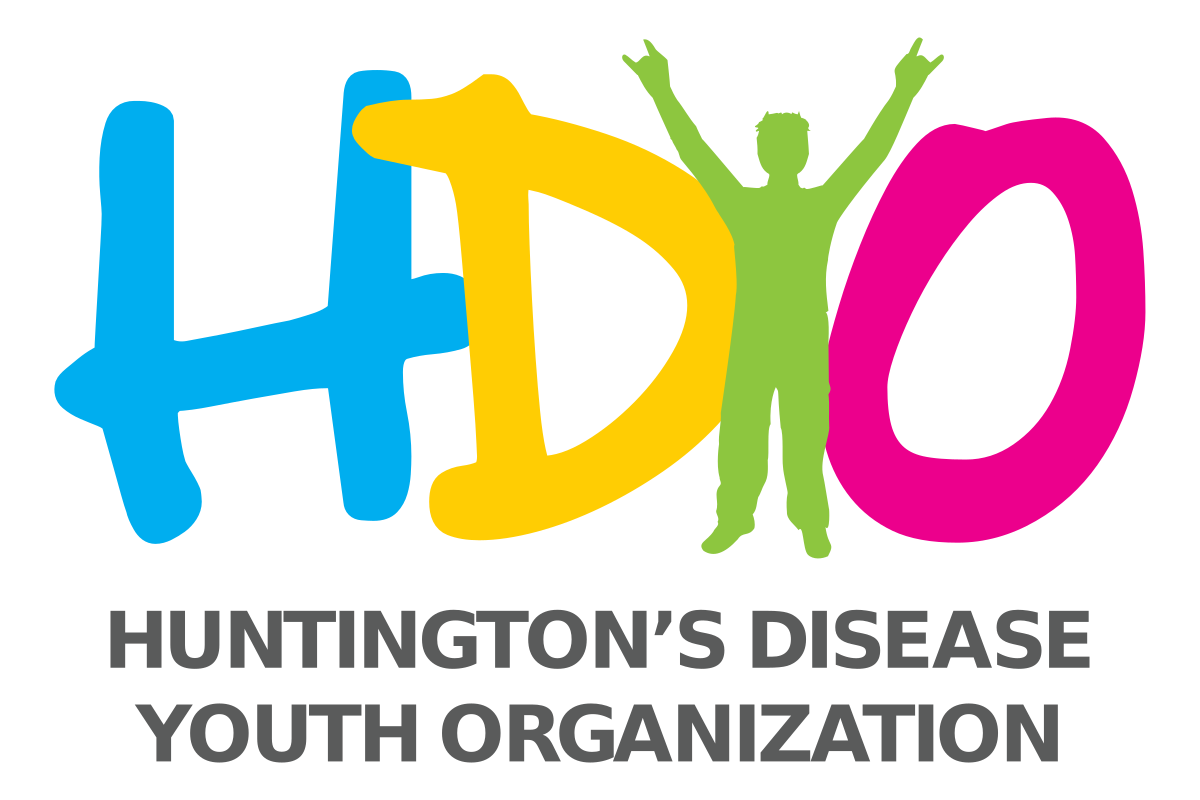The Difficulty in Diagnosing Juvenile HD
November 23, 2021

HDYO has more information about HD available for young people, parents and professionals on our site:
www.hdyo.org
Juvenile HD (JHD) can be a very challenging condition for a family and person to deal with. Even getting a diagnosis of JHD has its own challenges and frustrations for families and doctors alike, which can cause lengthy delays in a diagnosis. This section takes a look at the challenges in diagnosing JHD.
Why does diagnosing JHD take so long?
In one recent study the average time it took to diagnose children with JHD was an incredible 9 years! That’s a (really) long time! So why does it take so long and what happens during this time?

If the doctor is seeing a child for the first time, they have to consider what could be causing the symptoms the child is experiencing. If there is a parent or family member with HD, could these symptoms or behaviours be linked to the stress of being in a household with people who have HD? The stress of having a parent or sibling in the home can cause a child to be anxious, depressed, angry, or withdrawn, to sleep poorly or perform poorly on tests in school. On the other hand, other children and families may not even be aware of the risk of HD, perhaps due to adoption or the parent with HD not being a part of the child’s life, so why would a doctor even consider JHD as a possibility? Even if the risk of HD is known in the family, the doctor still has to take a thoughtful approach to figure out what is causing the symptoms the child’s experiencing. The doctor could make an assumption that because the parent has HD that these symptoms the child is experiencing are surely JHD, but that would be a total guess and could be a damaging wrong diagnosis.
In the very early stages, mild early symptoms such as changes in behaviour and clumsiness could be the sort of thing anyone could have, so the doctor should not immediately decide that they are symptoms of JHD. It could be completely normal for a child who is growing and developing to have times when they are moody, or a “clumsy stage”, or a class in school that they have trouble with. Even changes in movement can be caused by a child copying adults in their life. This leads to quite a lot of caution in diagnosing JHD.
“A physician will have a STRONG reluctance to diagnose HD “too early” or “incorrectly”. We would much rather be slow to get to the diagnosis, but quite certain about it when we do, than give someone that label and turn out to be wrong. And the stakes are so much higher in a kid. You REALLY REALLY don’t want to label a kid prematurely.” – Dr Martha Nance
A misdiagnosis can mean wrong treatments, incorrect information with which to move forwards with as a family and can delay finding the correct diagnosis even further. That is why it’s so important for doctors to take their time and make an informed decision.
Learning disabilities misdiagnoses
People with JHD are sometimes first diagnosed as having conditions like autism, dyspraxia, learning disabilities or Attention Deficit Disorder (ADD), because some doctors may not be so informed about HD and so overlook it as a possibility. While it is possible for a child with JHD to have one of these other conditions, too, the hallmark of JHD is that it progresses—things get worse over time even with the best treatment. Diagnosing the child with another more common condition may lead the doctors and school staff not to notice the onset of JHD, and to blame all the symptoms on the other condition. However, JHD has some signs that you would not expect to see for children with learning difficulties:
“Learning disabilities and attention deficit disorder, and so on, are very common in people who don’t have HD. But even kids with learning disabilities learn and grow and develop—the hallmark of HD is going backwards from whatever level you were at in the past. And it takes some time to be sure that you are seeing a change that really reflects a disease process and not psychological stress or day-to-day fluctuation.” – Dr Martha Nance
Can the genetic test help diagnose JHD?
Some parents of a child with suspected JHD ask their doctor to perform a genetic test on their child to show whether they have HD. Although this approach will provide quick test result, the gene test does not determine whether a child’s symptoms are CAUSED by HD or not, or when the HD symptoms will begin. It will only tell us that this child will get HD at some point in their life. The other issue with genetic testing is that not only does it not tell us whether the symptoms right now are JHD, but it takes away the person’s right to make their own decision about testing later in life.
“The gene test can be done to help with the diagnosis, BUT….the problem is that if a 10 year old kid at risk for HD comes in with headaches and blurry vision, and you do the HD gene test and they have 44 repeats, you have just done a predictive gene test in a 10 year old. Headaches and blurry vision have nothing to do with HD. So the doctor needs to be sure, before doing the gene test, that the symptoms really have anything to do with HD, and then the gene test is really done just as a confirmation.” – Dr Martha Nance

As mentioned elsewhere in this area of the site, JHD tends to come with a higher CAG repeat (this is what causes people to get HD), most people who have adult onset HD have between 40-50 CAG repeats whereas many JHD children have repeats higher than 60. Unfortunately, this is not always the case. Some children who end up having JHD actually have a repeat size between 40-50, which is usually associated with adult onset HD. So the CAG repeat analysis is not enough to make a diagnosis. Testing too early, for symptoms that are not actually due to HD could take away the child’s right to decide whether or not to have a predictive test when they are older, should they happen not to have JHD but still be at risk of HD.
This is why it can take several visits with the child for the doctor to feel confident with their diagnosis of JHD, and these several visits can span a couple of years. It takes time unfortunately.
Does a slow diagnosis process impact on the family and child?
So does this long wait for a diagnosis have any negative impacts on the family and child, aside from frustration at the length of time it takes to get a diagnosis? The answer is yes, there are some negatives for the family. One issue is trust between doctor and patient/family. If it is taking too long to diagnose and the doctor is still not seriously looking at JHD as an option then this can lead to a lack of trust developing and a breakdown in the relationship between the child/family and their doctor. We all want to be in a position ideally where we can trust our doctor and feel that they are listening to our thoughts. Another issue is that families may miss out on appropriate treatments and services (such as financial aid programs) which may really impact on the care the family can provide for their child during that time. However, at the moment there is no specific treatment to address the disease process; all the medications used are to combat symptoms that people with HD might have, like depression or sleep disturbance., The same medication would be used to treat these symptoms whether the child has an official diagnosis of HD or not, so the lack of a diagnosis should not keep a child from getting treatment for his symptoms. Perhaps the biggest issue with a lack of diagnosis can be that the young person and their family can be criticised by those around them and made to feel that it’s their fault. For instance, the child could be labelled by the school or by people in the community as having bad behaviour or being slow learner and the blame for this could be thrown at the parents for not raising their child right, when in fact the issue is a neurological disease that can’t be treated. Until a family has the correct diagnosis, this kind of blaming can happen.
Is there anything families can do to speed up the process?
Unfortunately, like adult HD, doctors are more likely to diagnose JHD when they see visible problems with movement, which means many families have to wait too long for their diagnosis. It is important to ask if the child is being seen by the best doctor in your area? Is your doctor knowledgeable about HD? If not, the diagnosis may take longer as the doctor needs to be familiarised with the serious possibility of HD, or uncomfortable or uncertain about making the diagnosis. If your doctor is not aware of HD and JHD and you have limited options to go elsewhere, then see if they are willing to learn more about it, and be persistent that HD needs to be considered seriously. If you are still not happy with the support you are getting from your doctor, then contact us and we will help to get some support for you.
Here we can see that diagnosing JHD unfortunately may take a long time whilst the doctor first considers other possibilities before diagnosing a child with such a condition. It is better that the doctor gets the right diagnosis than get it wrong, and to do this with any certainty it takes time. We are here to help, don’t hesitate to reach out to us for support if you need it.


